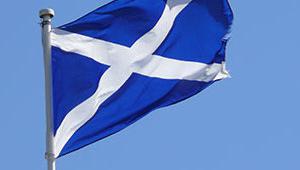His draft Budget was the first since the introduction of the Scottish Parliament’s new powers under the 2016 Scotland Act to vary income tax, which means that spending potential relates more directly to Scottish economic performance. Mackay said independent assessment put likely GDP growth at 1% this year and 1.3% next, against a historic average of around 2%.
As expected, Mackay rejected Labour demands to increase the top rate of tax, but also refused to emulate the UK chancellor’s de facto tax cut for higher earners, achieved by raising the threshold for paying income tax at the higher 40p rate.
He also refused to replicate cuts in the business rates bill for bigger businesses south of the border, prompting Tory claims that his Budget would leave families and businesses in Scotland taxed more than anywhere else in the UK, while Labour accused him of failing to protect public services.
More importantly for the arithmetic of securing the Budget for what is now a minority government, both the Scottish Greens and the Liberal Democrats made it clear that they would be looking for further significant concessions before they would lend him their votes.
“You are going to have to do a lot more listening,” the Greens’ Patrick Harvie told him. “We have got miles to travel before we can reach agreement,” said the Lib Dems’ Willie Rennie.
Ministers have been at odds with councils over a plan to seize £100m from rebanding the upper end of council tax and give it to head teachers to spend, furthering a ministerial commitment to close the attainment gap between pupils from different socio-economic backgrounds. Local authorities claimed this was a gross infringement of their right to spend local revenues locally.
Mackay confirmed today that he had withdrawn the plan, and would fund the attainment spend – now to be raised to £120m – directly from Scottish government resources. “Every penny raised locally will be spent locally,” he told MSPs.
The change was welcomed by the Convention of Scottish Local Authorities, though approval was muted by claims of cuts in core funding for councils. “Councils will now consider the whole package,” said COSLA president David O’Neill. “COSLA remains committed to working with Scottish government across the range of common interests, including public service reform.”
Complexities arising from the end of the council tax freeze, sustained through Scottish Government subsidy since 2007, made for a welter of competing claims about the overall impact of the draft budget on council spending and services, now that councils can impose capped rises in council tax.
Mackay claimed that overall Scottish government support for local authorities would rise by £240.6m, or 2.3%, and that spending on public services overall would increase by £700m, despite a 9%real terms Westminster-imposed cut to the Scottish public finances.
But the Conservative’s Murdo Fraser claimed that the Budget inflicted a cut in revenue support for councils of £130m, while Labour’s Kezia Dugdale diagnosed a real terms reduction in spending on public services of £327m and the Greens detected a £71m cut in direct funding to councils.
Rennie also highlighted a budget cut for Highlands & Islands Enterprise, a sensitive issue given Scottish Government plans to enclose both HiE and the lowland development body Scottish Enterprise beneath a new national supervisory board.
Mackay insisted that Scottish ministers provided “very strong” support overall for the Highland economy, and also told MSPs that the number of staff employed within the EU by the trade agency Scottish Development International would be doubled, to help mitigate the Brexit impact.
Other Budget proposals include resource funding of £304m for the NHS in Scotland, £120m above inflation; a 3.7% cut in business rates poundage and more rates relief for smaller businesses and £3m for targeted rail fare reductions.




















